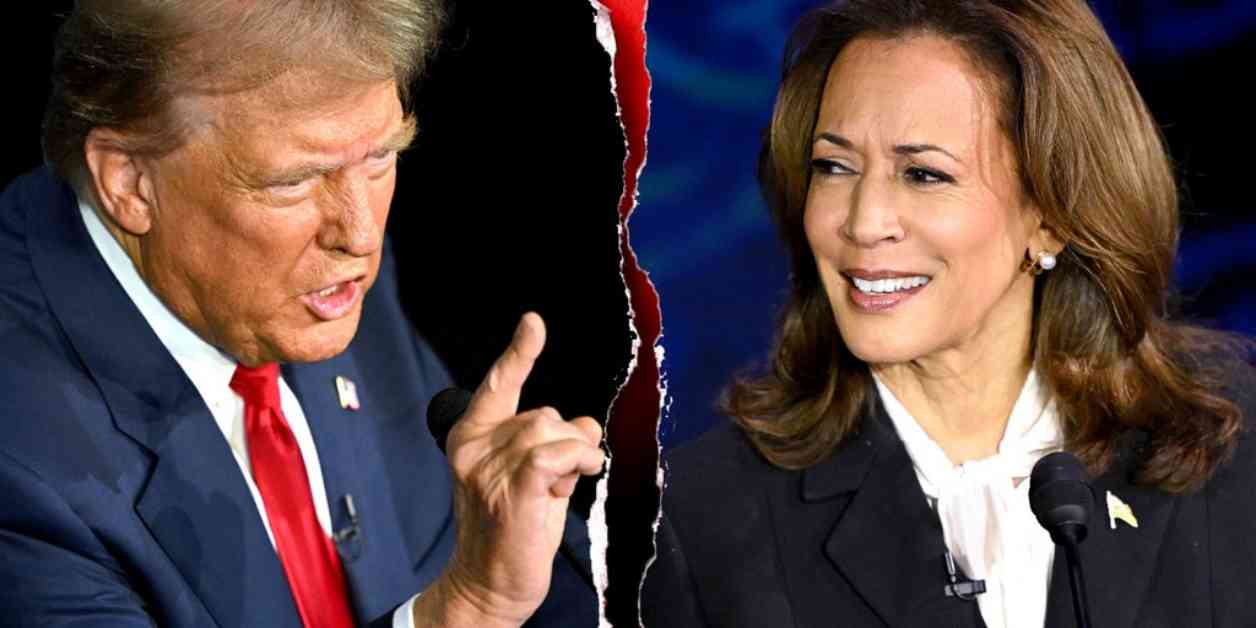Economists are raising concerns about the economic proposals put forth by former President Donald Trump and Vice President Kamala Harris, warning that these plans could further exacerbate the nation’s already ballooning budget deficit. Despite both candidates claiming to prioritize fiscal responsibility, experts argue that their policies fall short of addressing the pressing issue at hand.
Lack of Concrete Plans
Neither Trump nor Harris has released comprehensive policy plans specifically aimed at tackling the nation’s deficit. While Trump’s 16-point policy plan briefly mentions the word “deficit” once, Harris’ economic platform touches on the deficit multiple times but primarily focuses on increasing taxes on the wealthy and corporations as a potential solution.
Tax Foundation senior economist Erica York pointed out the lack of specificity in both candidates’ proposals, emphasizing the need for a more realistic approach to addressing the deficit. She expressed doubts about the effectiveness of Harris’s spending policies and questioned the feasibility of Trump’s promises regarding tariffs and green energy tax credits.
The Call for Realism
When asked about her message to Trump and Harris regarding the deficit, York urged them to “get real” and confront the challenges posed by the nation’s fiscal policy. She highlighted the importance of devising sustainable solutions that address not only the deficit but also other critical economic issues such as competition with China and the promotion of entrepreneurship.
Echoing York’s concerns, economist Kimberly Clausing emphasized the insufficient attention given to the deficit during the current campaign season. She attributed this oversight to candidates catering to popular demands rather than prioritizing fiscal responsibility. Clausing noted a significant shift from past elections where the deficit was a more prominent issue, underscoring the need for a renewed focus on fiscal prudence.
Current Fiscal Landscape
As of fiscal year 2024, the government is operating with a cumulative deficit of $1.9 trillion, according to the Bipartisan Policy Center’s “Deficit Tracker.” Despite a notable 11% increase in revenues, driven by individual and corporate tax hikes, higher interest rates, and reduced income tax refunds, experts remain concerned about the sustainability of current economic policies.
Trump’s economic proposals, which include tax cuts, a reduction in the corporate tax rate, and other incentives, are projected to result in a substantial increase in the deficit over the next decade. The Tax Foundation estimates that Trump’s policies could lead to a $4 trillion deficit expansion, highlighting the potential long-term implications of his fiscal agenda.
Government Spending vs. Tax Cuts
Heritage Foundation economist Richard Stern argued that government spending, rather than tax cuts, is the primary driver of the ballooning deficit. Stern contended that while tax cuts can temporarily increase the deficit, they also stimulate economic growth and eventually reduce deficits as a percentage of the economy. In contrast, excessive government spending hampers economic development and exacerbates deficit challenges.
Biden-Harris Administration’s Budget Proposal
The Biden-Harris administration’s fiscal year 2024 budget has drawn criticism for its unprecedented levels of spending, surpassing historical averages by 18% over a decade. The plan includes substantial investments in various sectors, such as housing subsidies, tax credits for manufacturing, and small business support. Despite Harris’s promises to address critical economic needs, concerns persist about the potential impact on the deficit.
The Downstream Effects of a Growing Deficit
Clausing highlighted the adverse consequences of an expanding deficit, such as increased interest rates and diminished creditworthiness for the country. These factors could pose significant challenges in responding to future crises, whether economic, security-related, or health-related. Maintaining fiscal flexibility is crucial for effective crisis management and overall economic stability.
Foreign Creditors and Global Implications
With China and Japan serving as the United States’ largest foreign creditors, the growing deficit raises concerns about the nation’s financial dependence on other countries. A substantial deficit could undermine the country’s economic sovereignty and limit its ability to navigate global tensions effectively. The need for fiscal prudence and responsible economic policies is paramount in safeguarding national interests.
Evaluating Candidate Approaches
Despite criticisms of their economic proposals, both Trump and Harris have garnered support from their respective camps. The Harris campaign, endorsed by over 400 left-leaning economists and policymakers, remains optimistic about her ability to address the deficit. In contrast, the Trump campaign has raised alarm about the potential consequences of Harris’s budget plans, emphasizing the need for prudent fiscal management.
Voter Perspectives and Economic Confidence
Polls suggest a mixed outlook on Trump and Harris’s economic competence, with voters expressing varying levels of confidence in their ability to navigate economic challenges. While Trump initially held an advantage in economic perception, recent reports indicate a narrowing gap between him and Harris. The upcoming election will likely hinge on how candidates address voters’ economic concerns and present credible solutions to fiscal issues.
Looking Ahead
As the campaign season unfolds, the focus on fiscal responsibility and deficit reduction will remain central to the economic discourse. Candidates must prioritize realistic policy proposals that address the deficit while promoting sustainable economic growth. The nation’s fiscal future depends on informed decision-making and prudent financial management to mitigate the risks posed by a burgeoning deficit.




